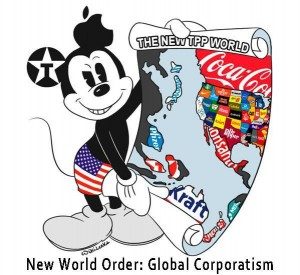
TUC General Secretary Frances O’Grady says suggstions of joining TPP trade deal is “Scraping the bottom of the barrel”
Last weeks latest ‘flight of fancy’ by International Trade Secretary Liam Fox and his Brexit team (cheered on by the pro-Brexit media) that the UK has held informal talks on joining the Trans-Pacific Partnership Trade Agreement, if the UK leaves the EU single market has been roundly trashed by economists, politicians and trade unions.
The TUC issued a warning about the possible impact on workers’ rights if were ever to join the TPP trade agreement.
It was announced last week that UK officials have embarked on ‘informal talks’ about future membership of the Trans-Pacific Partnership (now dubbed the Comprehensive and Progressive Trans Pacific Paternship CPTPP). Talks in New Zealand took place in November 2017, when Liam Fox held meetings in Wellington with NZ Trade Minister David Parker.
But TUC general secretary, Frances O’Grady, said such a move would be “scraping the bottom of the Brexit barrel. Trade unions around the world have opposed this deal because it allows labour abuses, it puts public services at risk and it gives too much control to corporations,” she said of the trading pact.
O’Grady said: “Ministers should stay focused on keeping frictionless trade with our major trading partners in the EU and protecting our rights at work. The best way to achieve this is a Brexit deal that keeps us in the single market and customs union after we leave the EU.”
The TPP deal was hit when Donald Trump pulled the USA out of the talks, which are still very slowly progressing. It still includes 11 potential members including Australia, Mexico, Singapore, Canada, Chile, Japan, Singapore, Brunei, Peru, Vietnam and Malaysia.
Trump has blamed NAFTA for being responsible for job losses in America’s industrial heartland but also abandoned the TPP talks and the talks on a trade deal with the EU – TTIP.
 US unions had mounted a vigorous campaign against TPP and received the backing of unions in counties taking part in the talks as well as UK unions such as Unite.
US unions had mounted a vigorous campaign against TPP and received the backing of unions in counties taking part in the talks as well as UK unions such as Unite.
The US Communication Workers said TPP would be a “complete disaster” as it could incentivise corporations to move service sector jobs to lower-wage economies such as Vietnam and Australian trade unions said that thousands of jobs could be destroyed by the deal.
In UK the shadow trade secretary, Labour’s Barry Gardiner, said TPP had been “mired in controversy, with negotiations clouded in secrecy and the USA pulling out over fear of job losses” and called on Liam Fox to explain why it made sense to be discussing aligning regulations with countries on the other side of the world that accounted for 8% of British exports, given the potential losses from a nearer market that accounts for 44%.
The fact is that the Tories and their Brexit have been casting around to open any talks or get even a promise of a trade deal to counter the loss of a trading deal with the EU after Brexit.
Immediately after the Brexit vote Liam Fox, David Davis and Boris Johnson suggested that securing trade deals to replace the benefits of the EU single market would be relatively easy. Britain would, they predicted, become a ‘swashbuckling trading nation’ again. That has not been the case.
Fox has tried to make himself look busy with publicity stunts – jetting around the world but getting nowhere fast.
Initially it was suggested that Commonwealth countries would come to our aid and do some form of trade agreement, or we could get a deal with India (which in turn said that increasing student numbers coming to the UK would have to part of any deal). Trump having held hands with her in the White House promised Prime Minister May a ‘big beautiful trade deal’ (only to show his ‘America First’ credentials with the Bombardier – Boeing situation). It has been suggested we could join NAFTA with the USA, Canada and Mexico. Fox has also ‘given the impression’ deals could be done with China, Japan, Turkey, Mexico and South Korea.
On TPP Fox said it was “a bit premature” to be trying to join the TPP before a deal has been negotiated but did not deny that talks had taken place.
Another minister farcically argued that the UK’s geographic distance from the Pacific was not a barrier to such a move.
Simon Fraser, a former British diplomat who led both the Foreign Office and the Department for Business, Innovation and Skills, poured scorn on joining a distant trading pact. He tweeted “Welcome to cloud cuckoo land”.
This was added to by former Treasury minister, (the respected economist now a cross bench peer) Jim O’Neill, who told the German newspaper Die Welt: “Brexiteers in May’s cabinet like Boris Johnson or Michael Gove were very intellectual, smart people. But they have no clue about the world of economy. They are clueless, sadly. Clueless.”
One of the lead countries in the TPP talks Japan, is the largest economy within the TPP grouping, accounted for just 1.6% of UK’s goods exports in 2016, according to the MIT’s Observatory of Economic Complexity. Meanwhile, Germany alone accounts for 11%.
The rabid pro-Brexit media in the UK is jumping on any half-baked announcement, (such as joining TPP or Nafta) in the hope of shoring up earlier optimistic predictions that countries would be queuing at our door to negotiate a trade deal and that the EU would eventually cave in to our demands.
Trying to replace a EU single market agreement with a deal with countries 5000 miles and three time zones’ away all with differing cultures and legislation borders on madness.
Plus the fact is that no trading block or country will open discussions with the UK until they see what sort of agreement we reach with the EU – that is their main prize, not the UK.
